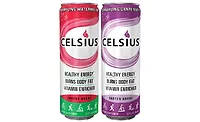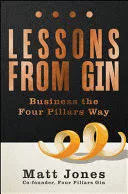Energy drinks get renewed focus
Healthy, natural ingredients resonate with consumers, research shows

(Image courtesy of Gorgie)
In 2025, more than half of all consumers are dissatisfied with their energy levels. As a result, the demand for products that can provide an energy boost remains high, albeit with a different focus.
Consumers are more aware of the relationship between energy and overall health, and are therefore more concerned about how products like energy drinks can both benefit and hinder their overall health goals. Consequently, the energy drink sector in 2025 is developing to meet the changing needs of consumers.
Health first
Although the demand for energy drinks remains high, consumers are drawn to products that won’t interfere with their health and wellness. Traditionally, energy drinks and other “quick fix” products have often been high in sugar and lacking in nutritional value, providing an immediate, but short term, boost in energy levels.
Consumers today are more attracted to energy drinks that will help them feel more energetic overall, providing a sustained and healthy energy boost that will not interfere with their health goals. This has manifested in a large proportion of consumers saying they find free-from additives (64%) and sugar-free (57%) claims appealing when purchasing energy drinks. Consumers want assurance from brands that the drinks they are consumers are safe and healthy.
Natural energy
As health becomes a greater priority for consumers within the energy drink sector, so does the focus on “natural” beverages. Around three quarters of consumers find “natural” claims appealing when purchasing energy drinks with 54% associating botanical ingredients with energy boosting properties. This is driving a demand for botanical based energy drinks that use natural ingredients to help sustain energy.
Certain adaptogens, such as ginseng or rhodiola rosea, have fatigue-fighting effects as well as other health boosting properties and are often viewed as natural solutions to energy. Similarly, alternative forms of caffeine, such as green tea extract, are viewed as more natural than traditional caffeine by many consumers. These botanical ingredients are becoming increasingly popular with consumers who often conflate “natural” with “healthier.”
Growth of functional energy drinks
Not only are consumers looking for energy drinks that do not interfere with their health and wellness, but ones that actively boost it. As mentioned previously, consumers are increasingly understanding the relationship between overall health and energy levels. As a result, they want the beverages they consume to help benefit their overall health in order to maintain and manage energy levels in the long-term.
When it comes to energy drinks, consumers want more than just caffeinated energy; they also want an enhanced ability to focus and concentrate. According to FMCG Gurus research, 52% of consumers say that they feel distracted or unable to concentrate some or most of the time. As a result, the energy drinks market is evolving to focus on promoting ingredients that help aid cognitive performance and the ability to stay alert and focused. This could be through the use of botanicals and adaptogen, or other vitamins and amino acids such as L-theanine.
Data based on FMCG Gurus: Energy Refocused - The Need for Fragmentation within the Energy-Boosting Market - Trend Report - 2024
Looking for a reprint of this article?
From high-res PDFs to custom plaques, order your copy today!





